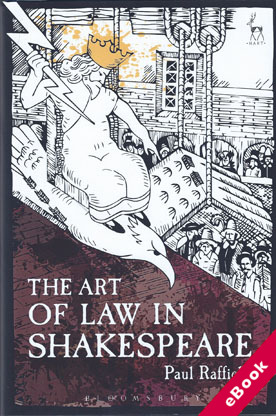
The device(s) you use to access the eBook content must be authorized with an Adobe ID before you download the product otherwise it will fail to register correctly.
For further information see https://www.wildy.com/ebook-formats
Once the order is confirmed an automated e-mail will be sent to you to allow you to download the eBook.
All eBooks are supplied firm sale and cannot be returned. If you believe there is a fault with your eBook then contact us on ebooks@wildy.com and we will help in resolving the issue. This does not affect your statutory rights.
Through an examination of five plays by Shakespeare, the author analyses the contiguous development of common law and poetic drama during the first decade of Jacobean rule.
The broad premise of the book is that the 'artificial reason' of law was a complex art form, which shared the same rhetorical strategy as the plays of Shakespeare. Common law and Shakespearean drama of this period employed various aesthetic devices to capture the imagination and emotional commitment of their respective audiences.
Common law of the Jacobean era, as spoken in the law courts, learnt at the Inns of Court, and recorded in the law reports, used imagery that would have been familiar to audiences at the plays of Shakespeare. In its juridical form, English law was intrinsically dramatic, its adversarial mode of expression being founded on an agonistic model. Conversely, Shakespeare borrowed from the common law some of its most critical themes: justice, legitimacy, sovereignty, community, fairness, and (above all else) humanity.
Each chapter investigates a particular aspect of the common law, seen through the lens of a specific play by Shakespeare. Topics include:-